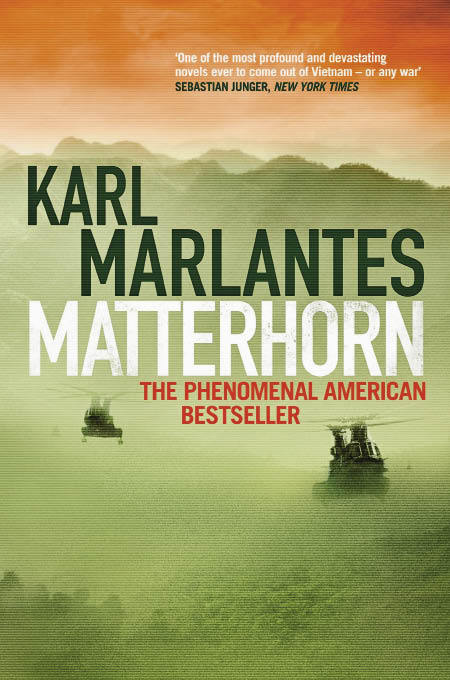The Matterhorn, at 14,679 feet in the Alps, is said to be very difficult to climb. It is an apt military designation for a (fictional) jungle peak that United States Marines were ordered to assault, abandon and assault once more, against fierce opposition, to establish an artillery base near the North Vietnamese border during the Vietnam war. Matterhorn is also a suitable title for a formidable epic novel, which is arduous reading but well worth taking on, especially if there is any need for further testimony that war is a criminal waste of time, money and men. About 60,000 Americans died in Vietnam to prove the point. It is being demonstrated again, with carefully limited casualties, in Afghanistan, but even greater expense and popular misgivings.
Karl Marlantes, a hero in Vietnam (Navy Cross, Bronze Star, two Navy commendations for valour), is proud to have been a Marine and says he is not a pacifist. However, the story he has based on his own experience in Vietnam, which has taken 30 years to write and rewrite, amounts to a persuasive pacifist tract. Any close-up, detailed, objective description of infantry in action reveals horrors and absurdities which make one wonder why the species at the top of the food chain is uniquely so self-destructive.
Marlantes, son of an Oregon small-town schoolteacher, enlisted in the Marine Corps at the age of 18, but was allowed to continue his education before active service. At Yale, he won a Rhodes Scholarship, and could have stayed at Oxford long enough to avoid Vietnam, but the thought of his contemporaries there made it impossible for him not to join them. Similarly, the protagonist of Matterhorn, Waino Mellas, spends four years at an Ivy League university, Princeton, before voluntarily going to Vietnam as a Second Lieutenant, USMC, to command a platoon in the worst of the fighting.
By 1968 it was apparent that the North Vietnamese Army (NVA), was unconquerable, in spite of the Americans’ total air supremacy and vastly superior fire power. Their artillery was reinforced by the guns of ships at sea. They had helicopter gunships. Fighter-bombers dropped napalm and defoliants. B-52s flew at high altitudes with impunity to drop 500- and 1,000-pound high explosives, sometimes accurately. Only in small-scale, intimate combat on the ground was there ever anything like parity, and in those encounters the Vietnamese unnervingly seemed willing to die in defence of their country. As one Marine colonel thoughtfully recognised, merely ‘killing gooks’ could not win in the end. ‘The NVA had forever. The Americans had until the next election.’
The Marines’ slogan, ‘Semper Fidelis’, was severely tested. Vietnam eroded fidelity to political leaders in Washington and to senior officers in secure bases mismanaging logistics and tactics for the sake of their own medals and promotions. Second Lieutenant Mellas
cursed the diplomat . . . He cursed the South Vietnamese making money off the black market. He cursed the people back home, gorging themselves in front of their televisions. Then he cursed God. Then there was no one else to blame, and he cursed himself for thinking God would give a shit.
Marlantes’s strong, acute prose makes his narrative painfully realistic, coloured with mud, blood, pus, jungle rot and leeches — even a leech that penetrates a urethra. There is a lot of authentically pungent dialogue, particularly effectively contrasting the speech of ‘junior Malcolm Xs and redneck Georgia crackers’. Racist conflict provokes the ‘brothers’ to talk of fragging a hostile NCO. Snafu, the old army acronym, is consistently relevant — ‘Situation normal, all fucked up.’
On the other hand, as Marlantes eloquently shows, faithfulness within small units of the Marine Corps was unshakable; individuals’ mutual loyalty was very much like love. Traditionally, the Marines always retrieved their dead and wounded, even at the risk of their own lives. The remains had to be gathered in body bags and repatriated, wrapped in flags to console the next of kin.
Mellas, like the author, is splendidly brave in attacking a bunker. After the adrenalin ebbs, he likens the Marines’ presence in Vietnam to the cloud shadows that drift across the mountains.






Comments